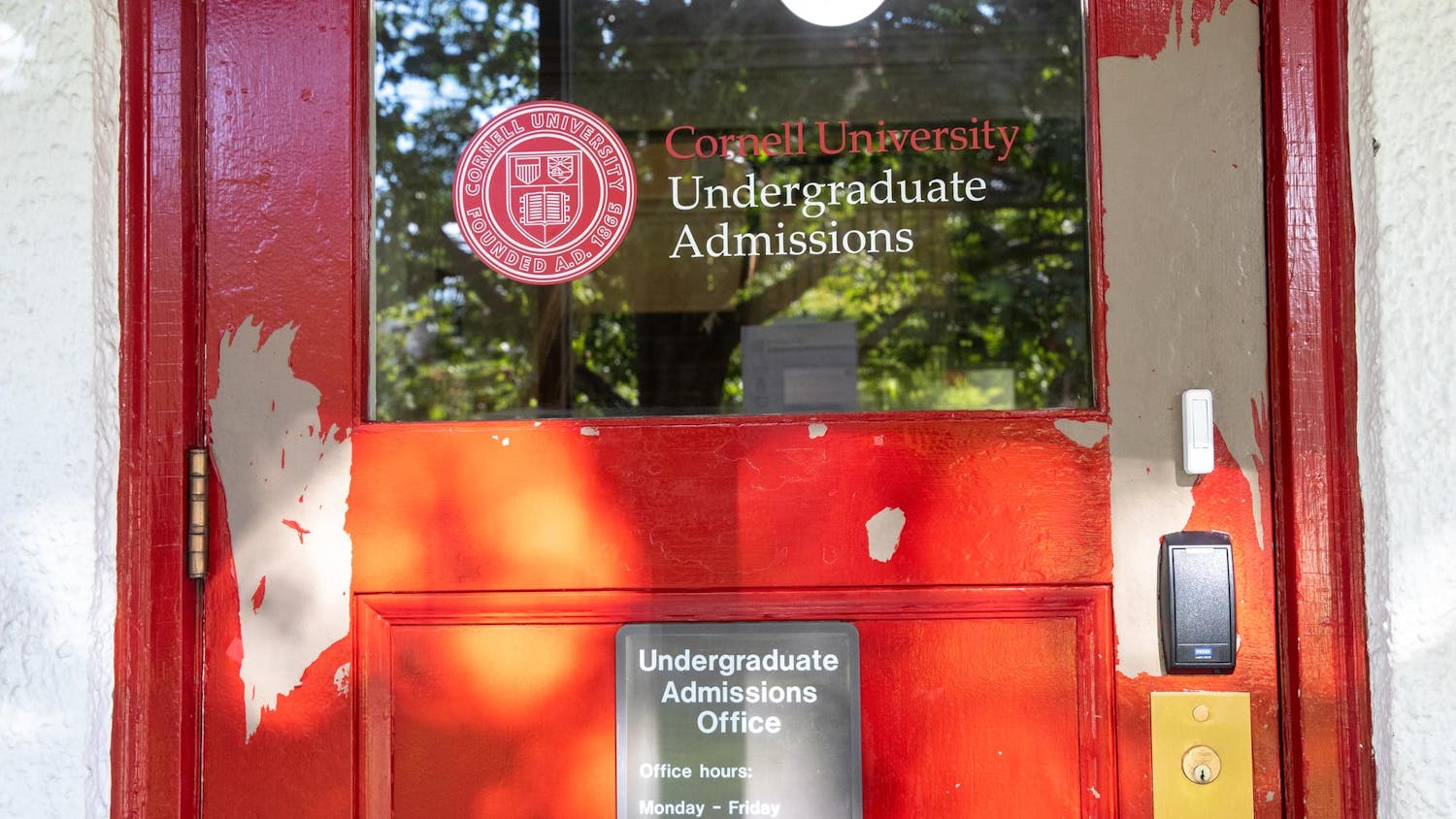Editor’s Note: This article contains a discussion of sexual assault.
Every 73 seconds, one person in the United States experiences sexual assault. According to the Rape, Abuse and Incest National Network, sexual assault is more prevalent on college campuses than any other crime.
Across campus and in the city of Ithaca, organizations held events and demonstrations to bring awareness to sexual assault and education about sexual violence during Sexual Assault Awareness Month.
On Friday, April 28, the Cornell chapter of Callisto, a non-profit organization that builds technology to combat sexual assault, set up an exhibit of 3,367 red flags on the Arts Quad, representing the 13 percent of students who reported experiencing nonconsensual sexual contact involving physical force, threats of physical force or incapacitation since entering Cornell in a 2019 campus survey.
“[When I realized] that [the flags] were for sexual assault victims, I was shocked,” said Manraj Singh ’26. “I looked to my left to see a family touring and a dad with his two daughters looking at the sign alongside me. [They were] in complete horror.”
Callisto is a service that aims to end serial sexual assault by providing victims the opportunity to enter their perpetrator's social media accounts into a database confidentially. If another person enters the same social media handle, they are “matched” and connected with a third-party attorney who will explain their legal options moving forward.
Considering reports of sexual assault and drugging incidents last semester, some students expressed the need to bring attention to the issue of sexual violence on Cornell's campus.
"It is more important than ever to raise awareness for sexual assault because [of how] prevalent [it is] on campus," said Caroline Kelman ’25.

The Advocacy Center of Tompkins County hosted an event called "Take Back the Night” on Friday, March 28, which included three marches and a rally at Ithaca Commons to protest sexual violence and domestic abuse.
“Take Back the Night” has been held annually in Ithaca and occurs in solidarity with other “Take Back the Night” events around the world.
At the rally, attendees has the opportunity to publicly share their experiences with sexual assault and how it has impacted their lives.
"Maybe he thought my silence meant yes," said a speaker at the rally whose name The Sun is withholding due to privacy concerns, pointing out that silence is not consent. According to the Planned Parenthood website, consent should be freely given, reversible, informed, enthusiastic and specific.
"You have the right to be safe,” read a poster from the Advocacy Center at the event, expressing the overall supportive environment that organizers attempted to create for the community.
Additionally, an array of Cornell organizations held events to advocate against sexual assault.
Sorority Alpha Chi Omega held “Denim Day” on Wednesday, April 26, where members wore denim in solidarity with victims whose stories were not believed. They also held a bake sale to raise money to donate to the Advocacy Center.
“Denim Day started with a court case in Italy in the early 90s,” Kelman said. “In this case, a girl came to the court stating that she was raped, but the court decided that it was not rape because she was wearing tight jeans and so she would have had to help the rapist take off the jeans. They said that in that case, it would have been consensual.”
People in Italy began protesting this decision in the 90s by wearing jeans outside the Italian Supreme Court. These protests received national media attention, and jump-started the international tradition of wearing jeans on “Denim Day” to symbolize the protest against sexual assault and victim blaming.
There are also resources available at Cornell Health that work to prevent sexual violence and support those who have experienced it. The Sexual Harassment and Assault — Response and Education office offers information on Cornell’s support services, reporting options, education and advocacy.
"At Cornell Health, we have a dedicated office that works to develop evidence-based and theory-informed strategies to prevent sexual violence in our community," wrote Laura Weiss, victim advocate and program director of the SHARE Office, in an email to The Sun.
Members of the Cornell Community may consult with the Victim Advocate by calling 607-255-1212, and with Cornell Health by calling 607-255-5155. Employees may call the Faculty Staff Assistance Program (FSAP) at 607-255-2673. An Ithaca-based Crisisline is available at 607-272-1616. The Tompkins County-based Advocacy Center is available at 607-277-5000. For additional resources, visit health.cornell.edu/services/victim-advocacy.











